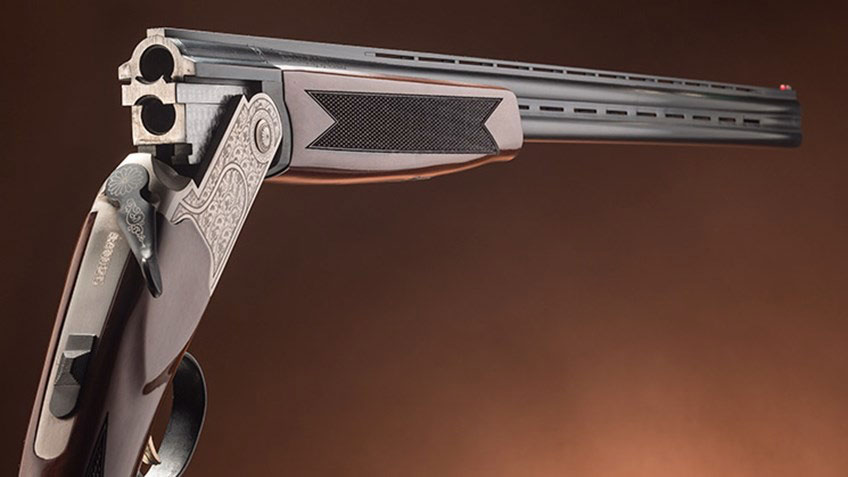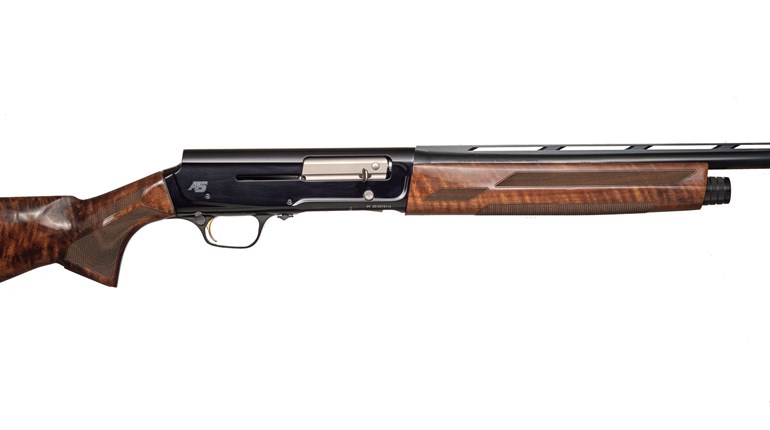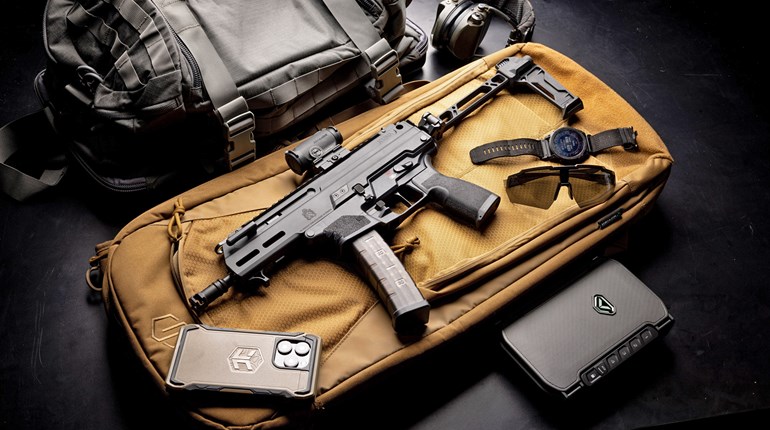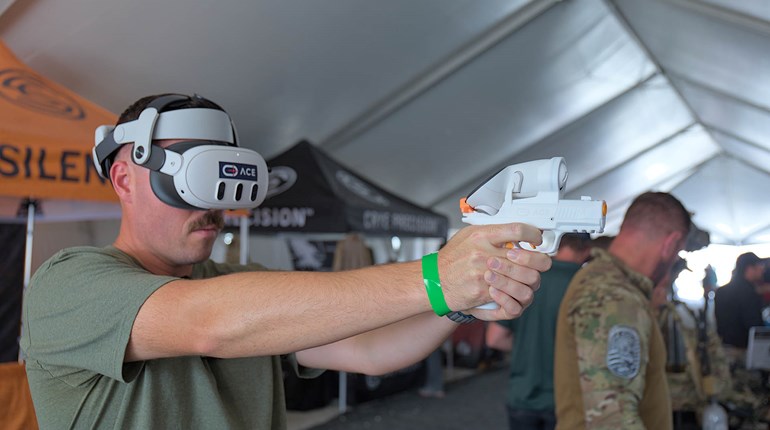
 If you read Shooting Illustrated regularly, you’re probably not the type who’ll settle for making do with whatever shotgun you happen to own, even if it’s not ideal for home defense. But many Americans are. Fact is, any gun in the home is better than none for self-defense, and many of those guns are old sporting shotguns like single-shots and double barrels. So, while you may not glean much from this article if you already own a Remington 870, a Benelli or a Molot VEPR-12, perhaps you can pass this info to your father, friend or bird-hunting buddy who owns an old double barrel but doesn’t seem to be overly concerned with knowing how he’ll actually use it during a home invasion. (I used to be this guy.)
If you read Shooting Illustrated regularly, you’re probably not the type who’ll settle for making do with whatever shotgun you happen to own, even if it’s not ideal for home defense. But many Americans are. Fact is, any gun in the home is better than none for self-defense, and many of those guns are old sporting shotguns like single-shots and double barrels. So, while you may not glean much from this article if you already own a Remington 870, a Benelli or a Molot VEPR-12, perhaps you can pass this info to your father, friend or bird-hunting buddy who owns an old double barrel but doesn’t seem to be overly concerned with knowing how he’ll actually use it during a home invasion. (I used to be this guy.)
Not long before my first 3-gun tournament (for which I was woefully unprepared), I rolled my eyes at the idea of tactical shotgun reloading. Give me a break! Being a hunter my whole life, I could shoot three times at passing ducks and reload a fourth shell and fire it before they were out of range. I can reload blindfolded, with gloves, in a sleet storm. “Just give me a pocketful of shells, and I’ll be fine,” I thought. But I was wrong. Pressure causes you to fumble shells, you’re not going to be wearing a shooting vest in the middle of the night and, mainly, ducks seldom return fire. If the other guy is firing at you, fishing a shell out of a jangling pocket of shells—and lowering the gun to do so—could get you killed.
Clint Smith, of Thunder Ranch, is one of the country’s most respected firearm instructors. One reason I like him is because he’s not a tactical gun snob. He preaches, “Run the gun you got.”
If you’ve got a double barrel, this means wrapping the fingers and thumb of the support hand around the metal of the barrels as far toward the muzzle as comfortable, since the goal is not to swing with a bird, but to keep the barrels down to get off an accurate second shot quickly. Don’t worry about bypassing the fore-end entirely; the goal is to get a powerful grip on the barrels so you can control this bucking horse by keeping its head down.
Tactical reloading of a double barrel means keeping the gun in the shoulder pocket in the shooting position while sliding the action lever with your trigger hand thumb, then finding two shells from your carrier, closing the action using leverage from both hands and firing again. You need to practice this to build smoothness and speed. Some guns that feature automatic ejectors may require leverage to open the gun rather than just gravity, and if so, you’ll need to figure out a quick way to do so while moving the gun from the shooting position as little as possible.
If the gun has extractors only, there’s a chance you can simply open the action, then jerk the gun backward and stop it abruptly to cause the shells to pop out of the chambers—if the chambers aren’t too tight (dry lube helps). It’s a great technique. Otherwise, you’ll have to pluck them out with your trigger hand. See if you can do this two at a time. But if it has automatic ejectors, the shooter should know if those empty hulls will fly over the head as it’s mounted on the stock, or if they’ll strike him in the eye or forehead. If the latter, care should be used to roll the gun to the side as the action is opened.
Does the old shotgun have an automatic safety, or is it manual? Are the most-open chokes installed in the gun if it has removable choke tubes? Will the old fowling piece stand up to a full charge of modern 00 buckshot? Does it print its pattern where it’s aimed and deliver a decent pattern at combat distances?
These are all things that the average “I’ll just grab the double barrel and stop the attacker” guy should know prior to actually using such a gun to defend his home. Remind him that after the two shots are fired, the shotgun in his hands becomes a rather poor club if he hasn’t the means or skills to reload it in a hurry.
That said, the old Wells Fargo coach gun does have several advantages. One, its dual barrels can be loaded with buckshot in one and birdshot in the other, so the user has the option of shooting either load as needed, either by pulling the appropriate trigger (if it’s a double-trigger model) or using the barrel-selector switch. The second advantage is its simplicity. Even those family members who refuse to invest the time to learn how to run a semi-auto can quickly understand the double’s operating procedure, which is: pull the trigger, push the lever and stuff the barrels with two fresh loads.
The final and biggest advantage is the reason professional hunters in Africa most often use double guns for following up wounded game: The two shots from a double barrel are the fastest and most guaranteed two shots of any gun. Unless a trigger spring breaks or the shell is a dud—both ridiculously rare occurrences—the shooter is virtually guaranteed two shots as quick as he can pull the trigger. Semi-autos can jam and pumps require a half-second. When a leopard or a bad guy charges at breath-smelling distances, this fact is significant.
If one owns a double barrel, is comfortable with it and wishes to make it his or her home-defense gun of choice, there are a few modifications that can enhance its effectiveness. Buy a butt sleeve for it that holds extra shells. I like the simple, inexpensive elastic kind from Blackhawk because it doesn’t raise the cheek-weld position like the thicker, leather type. Also, consider mounting a flashlight under its barrels. Finally, use a touch of white (or glow-in-the-dark) nail polish to make the front brass bead stand out. Obviously, make sure the gun is clean and lubed—but not drenched with oil.
While it may not be my first choice for a dedicated shotgun for home defense, plenty of people rely on such arms to defend their homes. If all a homeowner has is a double barrel, it can be a formidable defensive arm—provided he or she knows how to run it.



































